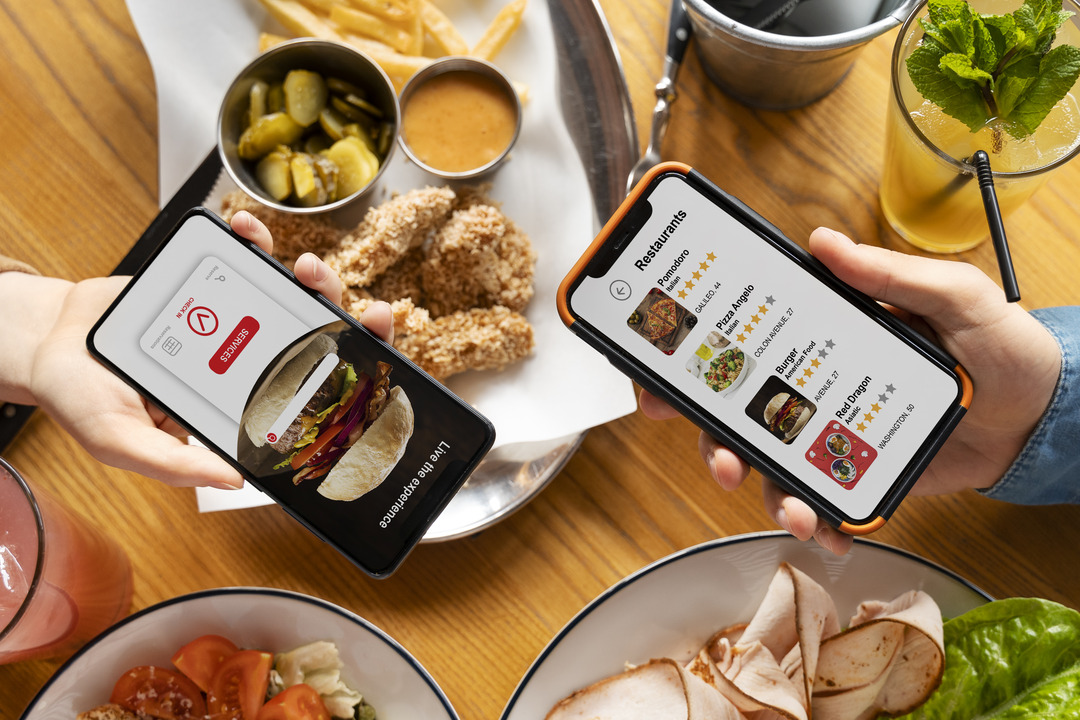The Rise of Ghost Kitchens: What It Means for Online Food Ordering Systems

In recent times, a game-changing innovation has emerged in the food industry: ghost kitchens. These kitchens which are also known as virtual or cloud kitchens have completely changed how food is prepared and delivered. We will now explore the implications this phenomenon has on online food ordering systems and hotel dining services in particular.
What Are Ghost Kitchens?
The Ghost kitchen industry is an example of the latest and up-to-date technologies for preparing and distributing food to people. In contrast, they are not like traditional restaurants because they do not provide seats for the customers which can be used for dining. Instead, orders are placed online by customers through ghost kitchens, which in turn leads to the preparation of food for the sake of delivery and takeaway.
These kitchens are geared to working in the background, with their focus on the preparation of meals for take away or delivery. In contrast with a regular restaurant that has to accommodate customers and tables for seating, ghost kitchens can effectively use their space and lower the costs as there is no need to provide seating.
Overall, a ghost kitchen is just a term referring to a hidden gourmet place where meals are cooked without the attendance of waiters or usual dining areas. The technology helps with the overall process of food delivery to the point that it becomes easier and more convenient for customers to eat their favorite meals in the comfort of their homes.
The Role of Ghost Kitchens in Hotels
Ghost kitchens give hotels the opportunity to enhance their dining services and maximize the efficiency of their operations. These innovations in the kitchens of the hotels can provide guests with more food options, high-speed delivery, and a dining experience that is better than ever. Through ghost kitchens, hotels will not only have a wide variety of meals on their menus, but they will be able to serve them quickly and can alter the way they manage food services.
How Ghost Kitchens Are Transforming the Hotel Industry
1. Diverse Culinary Offerings: Ghost kitchens endow hotels with the opportunity for food diversification without exhausting their kitchen space requirements anymore. Using a single kitchen to simultaneously run multiple virtual brands allows hotels to customize menus to a wide variety of flavors and tastes. Irrespective of whether you would like gourmet hamburgers, authentic ethnic cuisine, or health-conscious food, the ghost kitchens provide vast possibilities for the hotel's guests.
2. Increased Efficiency: The preparation of food in the ghost kitchens boosts the entire kitchen organization and efficiencies within the hotels. When kitchen staff work solely on fulfilling online orders, they can master their workflows and reduce downtime as a result. This causes hotels to deliver meals in less time, resulting in shorter wait times for the customers and, in turn, better overall dining.
3. Adaptability to Market Trends: The food industry is commonly associated with its fast pace of evolution and fickleness among consumers' preferences. The flexibility of the ghost kitchens provides hotels with the capacity to be responsive to the fast-changing market conditions. Hotels can make the necessary adjustments to their menus by responding to emerging dietary preferences, seasonal ingredients, and culinary trends. This will ensure that they remain relevant to the target audience.
4. Seamless Integration With Technology: The ghost kitchens come seamlessly along with the technology itself which gets deployed right from the online ordering platforms to the mobile apps in order to ensure that the guest experience is at the optimum level. Hotels can shift the order process and order tracking from offline to online through digital tools, which will lead to streamlining the ordering process and consequently, will help provide the customers with a better quality of services. Technologically advanced systems of inventory management and delivery logistics take operations to a higher level and thus guarantee operation efficiency at the time of meal delivery.
5. Cost Savings and Revenue Generation: Besides giving financial incentives to hotels, ghost kitchens are financially viable as far as the budget is concerned. By focusing the food preparation in one centralized kitchen area, hotels can lessen the cost of overhead that comes with the operations of several dining outlets. Moreover, managing more than a single virtual brand from one kitchen entails increasing the revenue possibilities for hotels and a chance to target all the market segments, thus bringing a larger client base. Overall, ghost kitchens are a financially practical strategy for hotels that want to improve the efficiency of their food service and boost profitability.
Conclusion
It is important to note that ghost kitchens are bringing about a sort of change in hotel dining by offering a cheaper, more effective, and varied gastronomic experience. With the proceeding high demand for online food deliveries, these innovative kitchens are likely to become the core of hotel dining service. Through ghost kitchen infrastructure, hotels will be able to maintain their competitive edge, respond to the needs of their guests effectively, and ensure high-quality dining. Furthermore, if you are a hotel or restaurant owner searching for ways to implement a ghost kitchen and online food ordering system then look no further than Arena Software’s which specializes in developing such mobile apps and websites.
